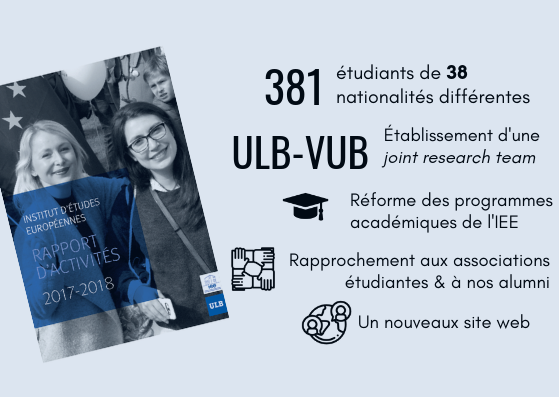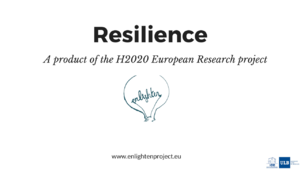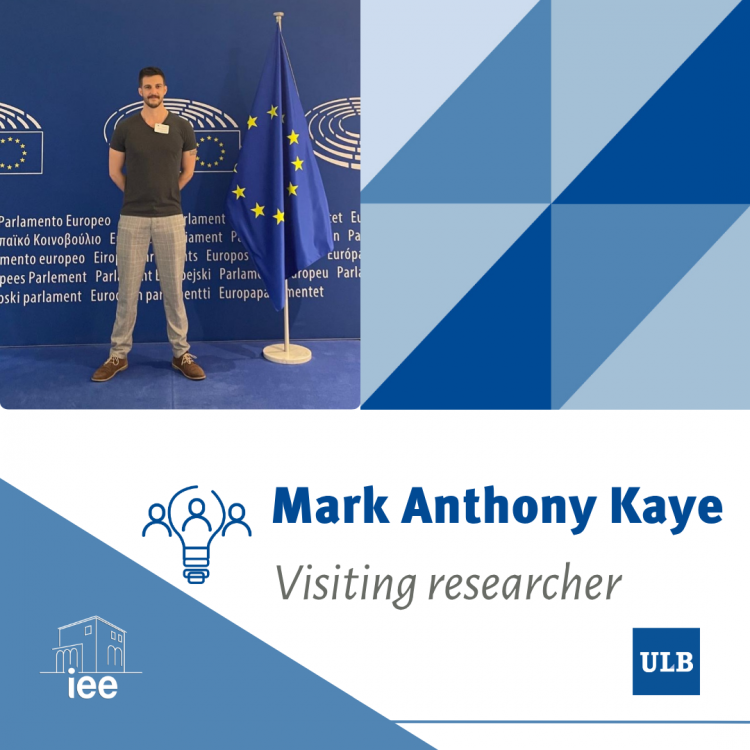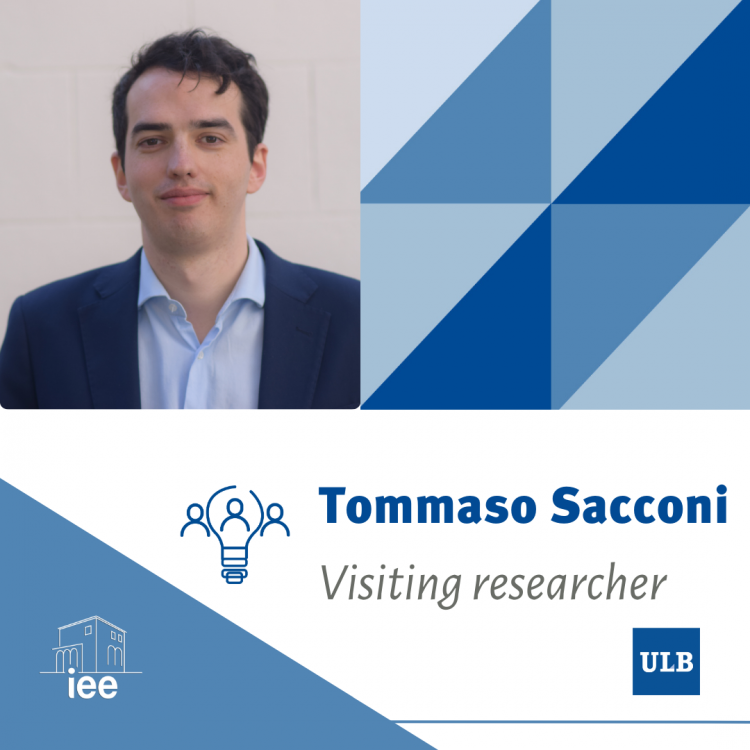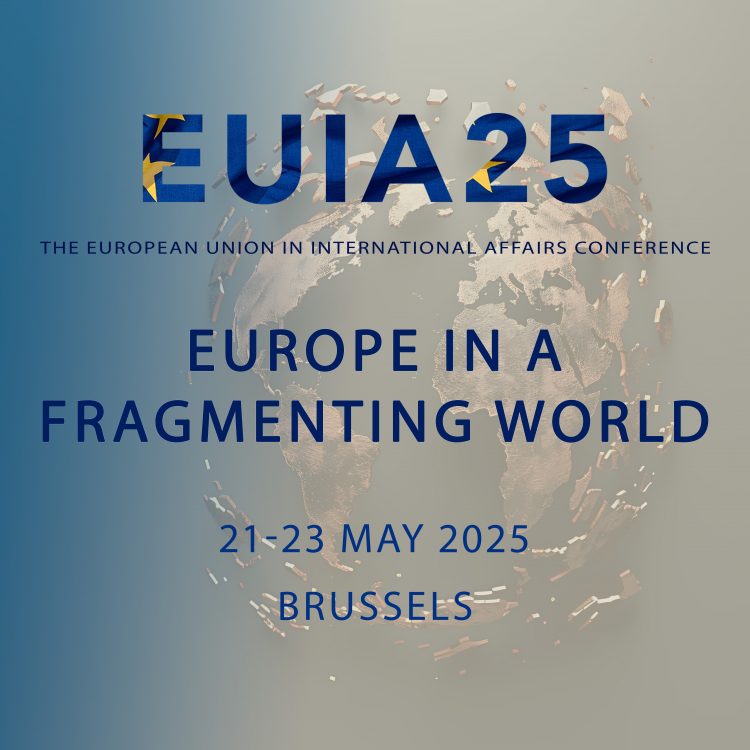During the 2017-2018 academic year, the Institute for European Studies has actively pursued its missions: teaching, research and public debate.
Regarding teaching, this academic year was marked by an important reflection about the future of the Specialized Master in Interdisciplinary EU Studies. It ended with a reform of the programme to be implemented at in September 2018, with the opening of the academic year. Besides becoming a full English programme, the IEE integrated student mobility programme with Japan in its curriculum, as well as a specialized module in comparative regionalism.
The MEUS programme – Executive Certificate in European Union Studies – has also undergone important reforms, to offer potential participants specialized modules in various themes, always conducted by professionals in European affairs and academics from the IEE and other universities.
In research, the IEE finished the the H2020 project ENLIGHTEN on economic governance in times of crisis. The numerous publications produced in the context of the project are the testimony of its success and of the fruitful collaboration between the IEE and the other partner universities, notably the Copenhagen Business School (CBS), the University of Amsterdam, Central European University and the non-academic partners (Tax Justice Network, Housing Europe, Finance Watch and the European Trade Union Confederation). The Institute has also pursued the implementation of other European projects in research such as the H2020 GEM-Stones.
In the context of its « Center of Excellence Jean Monnet », the IEE has launched the platform ULBLEU, meant to increase the visibility of publications in the field of European studies of all academics and researchers affilitated to the IEE.
As for its public debate mandate, the Institute for European Studies has, among other initiatives, launched, in collaboration with the Cevipol, a new series of conferences under the title « The State and the Future of the EU » with the objective of better understanding the national situations in the 28 Member states of the EU and the rebuilding projects for European integration in the context of the rise of populist parties, extremist and Eurosceptics.
This cycle was inaugurated on December 4, 2017 with the presentation of a report about « The Future of the EU » by the Groupe Europe of the Académie Royale des Sciences de Belgique. On this occasion, the Institute welcomed, among others, the Baron Etienne Davignon and members of the Académie Royale de Belgique.
In the context of this cycle, the IEE has also welcomed Christopher Bickerton, from the University of Cambridge to present a left-wing vision of Brexit (March 2018); François Roux, Permanent Representative of Belgium at the EU to address the problem of economic policy coordination at the EU level (March 2018) ; Laszlo Andor, former European Commissioner for Employment and Social Affairs, to discuss the future of the EU in the context of increasing tensions between the West and the East (April 2018) and Carlo Ruzza of the University of Trento to debate the results of the elections in the countries of Southern Europe (May 2018).
This series of seminars, joined by many other debates on Europe at the IEE and the ULB, has had the goal of feeding our reflections on the great European challenges that the May 2019 elections bring.
The deepening of a wide range of collaboration has been particularly important during this academic year (among others, with the University of Warwick in the United Kingdom and with the Universidad Nacional de Educación a Distancia, in Spain).
The IEE has also reinforced its collaboration with the student association in European Studies (SAIES) and with Eyes on Europe. Numerous conferences and events were jointly organized. With their vitality, they embody the quality of European studies at the ULB and the engagement of our student body in the great European debates. They are at the core of the social life of students in European studies. Study at the IEE also means become a part of a community of Europeanists with long-lasting bods after graduation.
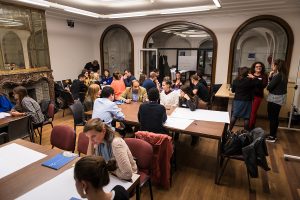
The Institute has strengthened the collaboration with its alumni. In 2017-2018, the IEE-ULB paid special attention to them and, as a result, a report analysing the professional paths of our graduates of the past 10 years was published in August 2018.
This work has allowed us to better understand the career perspectives of our graduates but has also been a way to reconnect with them and invite them to participate in their Alma Mater’s activities.
Rich in the diversity of its alumni, the IEE has taken the initiative to facilitate networking opportunities between its current and former students, in order to increase the inter-generational dialogue. To bring this project to fruition, in 2018, we presented a request for funding to the Fonds d’encouragement à l’enseignement en études européennes to organize in 2018 and 2019 a series of mentoring sessions.
During this year, the IEE has also strenghtened its cooperation with the Institute for European Studies of the Vrije Universiteit Brussel (IES-VUB), by establishing, among other initiatives, a ULB-VUB joint research team in European studies.
The IEE has also co-organized, along with the IES-VUB, the Institut Egmont – Royal Institute for International Relations – and the United Nations University Institute on Comparative Regional Integration Studies (UNU-CRIS), the conference EUIA 2018 under the title “Projecting and Protecting Europe.” With the goal of examining the role of the EU in its relationships with the rest of the world and the effects of internal crises on its external action, the conference was met with great success. The selection committee received 600 proposals. Many panels were organized during the 3 days of the conference, with a closing keynote by Nathalie Tocci, Special Adviser to EU HRVP Federica Mogherini.
Other partnerships have been developed this year on the European continent and beyond. We would like to highlight the signature of an MoU with the Graduate School of Asia-Pacific Studies (GSAPS) of the University of Waseda in Tokyo, that consists both in collaborations for teaching and research.
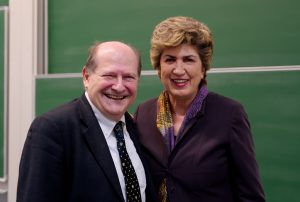
Finally, among the key moments that marked the life of our IEE in 2017-2018, we can underline the ceremony in honour of Professor Mario Telò, organized on December 18, 2017 by the IEE and the Faculty of Philosophy and Social Sciences, during his last course in International Relations. It was the occasion for the members of the academic community of the ULB and numerous universities around the world to pay tribute to the international Professor Telò’s international career and to thank him for the his fundamental role in the development of research networks at the ULB and his devotion and contribution to the development of the Institute for European Studies.
We want to highlight the graduation ceremony in European studies. The class of 2017-2018 chose the name of Professor Éliane Vogel-Polsky to honor an engaged and critical professor in the field of European social law. During this ceremony, the IEE had the pleasure to welcome MisterDiego Canga Fano, head of cabinet of the President of the European Parliament, an IEE graduate of the class of 1987 (Licence spéciale en droit européen).
Thank you all for your precious collaboration in 2017-2018
Anne Weyembergh, President and Ramona Coman, Director of the IEE
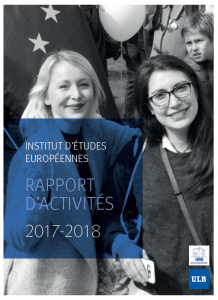
Read our IEE-ULB annual report 2017-2018 (in French)
and relive with us the key moments of this academic year
